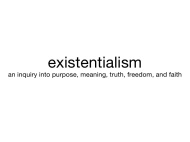For three weeks, we indulge ourselves with different major philosophies that more or less influenced our education today. I have given the chance to dwell and understand the different philosophies from our module, and I found out the direct and indirect influences of the different philosophies as well as how it shaped our education system.
The different major philosophies being tackled from our previous module are idealism, realism, existentialism and pragmatism. I want to define and describe the said philosophies based on my own understanding.
Idealism- The main goal is to search for truth through ideas and self realization. Ideas can find through continuous dialogue and answering questions or Socratic methods and this method is still being used in law school. Some of my friends who were teaching law says that this method is helpful in order for their students to be self regulated and develop higher order thinking skills. This method can be good for those learners who have a good foundation (example basic concepts, basic skills etc.)
Realism – this philosophy deals with understanding of the world through inquiry. This can be done using scientific research and development. Since one of its aims is to benefit for human living, education focuses on skills and knowledge like the basic 3R or writing, reading and arithmetic.
Existentialism– its most significant goal is to awaken human consciousness to the freedom to choose. Their focus is the individual development hence this philosophy focuses more to create self awareness and contribute to authenticity. There’s no prescribed curriculum but based on the individual needs of each student. I haven’t encountered any schools who cater existentialism or individual curriculum however, I sometimes think that education should emphasize individual importance because we have different needs and capabilities as unique creation.
![]() Pragmatism– this helps to develop the character, the habits and virtues that would enable them to achieve self- realization. This basically focuses more on learning by doing or practice. Problem solving can be done through scientific method.
Pragmatism– this helps to develop the character, the habits and virtues that would enable them to achieve self- realization. This basically focuses more on learning by doing or practice. Problem solving can be done through scientific method.
As student who aspires to be a teacher in the near future, it is best for me to define my personal philosophies because this will influence how will I appreciate the lessons and handle my students in the future. I must say that as of this writing, I a more pragmatist and existentialist with a little idealist. I believe in giving due importance to individual growth and acknowledge individual value because each has its own obstacles and unique conditions that contributed on how they learn. Same with me, I have my own situations that contributed to my learning styles and how I think and understand concepts.
Now that I have given the chance to further study, I came to realize more that I have not given the good foundation most especially with English, mathematics and sciences. Although it demoralizes me sometimes, but I am trying to deal with these weaknesses and trying to make up with my weaknesses by trying to study and going back to the basics.
References:
Philosophical Roots of Education (n.d). Retrieved from http://www.wou.edu/~girodm/foundations/philos.pdf



